 | | | Campuses Move Toward Climate Action
Amidst Turmoil of 2020-2021 Colleges have concluded one of the most difficult years in memory marked by a raging pandemic, declining finances and closings, police violence that spurred anti-racism efforts, and an insurrection against the U.S. government that threatened democracy itself. As the pandemic wanes and the Biden Administration moves to support civil rights, education and the environment, campuses will reopen with renewed possibilities for transformation. They will be building on the continued efforts of students, faculty, staff, and some administrations to engage with the critical issues of our time, especially the climate crisis. Despite working remotely, advocates were able to get astonishing results on campuses and in communities nationwide. 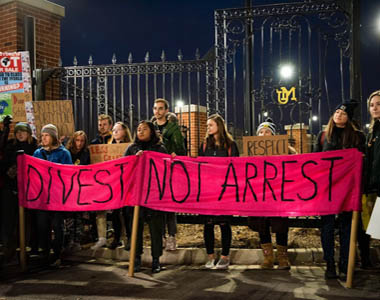 In this Summer 2021 issue of the RCC Campus Dispatch, we shine a spotlight on much of that important work. A number of colleges and universities that have already divested entirely from fossil fuels have moved toward zero emissions, stronger sustainability goals, and environmental justice. In the last Campus Dispatch, for example, we celebrated the successful student-led battle at the University of Michigan to end arrests of activists and investments in fossil fuels. Now Michigan is moving forward toward carbon neutrality. Another RCC Campus, UC Berkeley, went beyond divestment to transformative campus initiatives such as a new UC system-wide Center for Climate Justice. Other campuses that have already divested, like American University, looked to deep institutional change with an ambitious five-year sustainability plan. Campus lockdowns also inspired creative approaches to the climate crisis as at RCC member campus, Duke University, which turned to the arts to inspire and educate, while sustainability is increasingly gaining ground on American campuses. In this Summer 2021 issue of the RCC Campus Dispatch, we shine a spotlight on much of that important work. A number of colleges and universities that have already divested entirely from fossil fuels have moved toward zero emissions, stronger sustainability goals, and environmental justice. In the last Campus Dispatch, for example, we celebrated the successful student-led battle at the University of Michigan to end arrests of activists and investments in fossil fuels. Now Michigan is moving forward toward carbon neutrality. Another RCC Campus, UC Berkeley, went beyond divestment to transformative campus initiatives such as a new UC system-wide Center for Climate Justice. Other campuses that have already divested, like American University, looked to deep institutional change with an ambitious five-year sustainability plan. Campus lockdowns also inspired creative approaches to the climate crisis as at RCC member campus, Duke University, which turned to the arts to inspire and educate, while sustainability is increasingly gaining ground on American campuses. Such efforts will be galvanized by a new generation of campus environmental leaders. The RCC is proud to announce in this issue the winners of our national RCC Fellowships for 2021-2022. They will be working on divestment, diversity and environmental justice, and more while supported in their work with a $2,000 stipend, training, mentoring and professional development.  We hope that this issue of the Campus Dispatch will once again lead you to find, and share with us, your resources, reflections, stories, news, ideas, art, or projects, that brought success, as well as struggle, in sustainability and those things — nature, beauty, spirit, imagination — that give us sustenance. — Bob Musil and Mackay Pierce | | | | | | | | As we look forward to the new academic year, actions on sustainability and justice continue to happen on campuses across the country. At Loyola, Nancy Tuchman, Dean of Loyola Chicago's School of Environmental Sustainability, is calling for Jesuit institutions to become leaders in environmental justice. On other campuses, solar and sustainability innovations are moving forward as schools look to meet carbon emissions goals and improve their efficiency. | | | | | | Jesuit Schools Must Be Environmental Justice Leaders, Dean Says As the global community seeks solutions to climate change and other environmental threats, Jesuit colleges must lead by example and provide education aimed at creating a more just and sustainable world, a dean at Loyola University Chicago said at a recent Jesuit conference. Nancy Tuchman, dean of Loyola Chicago's School of Environmental Sustainability, said directives from Pope Francis and the Society of Jesus on caring for God's creation make it critical that Jesuit schools put those principles in practice on their campuses and in their curricula | | | | | | New UC Center For Climate
Justice Launches The University of California is launching a new center just in time for Earth Day: the Center for Climate Justice. Led by management of complex systems professor and UC Presidential Chair Tracey Osborne, the Center for Climate Justice is a system-wide initiative to address climate change as a social justice and equity issue. The center’s mission is “to leverage and harness the power of the university to support, strengthen and build an emergent climate justice ecosystem and social movement that solves the climate crisis through science, systems thinking and social-ecological justice. | | | | | | Honors College Students Help Organize Virginia Environmental Justice Summit Facing a world of climate change, systemic racism, and resource inequity, ten Honors College students worked with peers from Mason and VCU to organize the second annual Virginia Environmental Justice Summit, held on Saturday March 27th, 2021. “Seeing this conference continue into the second year, creating something sustaining that educates and empowers students throughout the state, has been a great metric of success," said Dasha Maslyukova, Honors College junior and president of the Mason Environmental Justice Alliance. | | | | | | RCC Sponsors 7th Annual University of Maryland EJ Symposium The first UMD EJ Symposium took place on Saturday, December 1, 2012 and was organized by Dr. Sacoby Wilson with support from Mustafa Santiago Ali (then Associate Director of the US EPA Office of Environmental Justice) and Leslie Fields (National Environmental Justice Director for the Sierra Club). This intersection of academic, government, and non-profit sectors for the purpose of providing environmental justice community stakeholders with a space to convene and network was the first of its kind in the DC-Maryland-Virginia region. (Register today by visiting go.umd.edu/2021umdejsymposium.) | | | | | | Advocacy Groups Gather in Pittsburgh to Call For Divestment in Policing, Reinvestment in Community Needs Advocacy groups met in Downtown Pittsburgh on Thursday to call on lawmakers and leaders to divest in police resources and invest in community concerns they say are the root cause of violent crime. “The safest communities are not the communities with the most police,” said Jasiri X, co-founder of the Black artist/activist collective 1 Hood Media. “The safest communities are the communities with the most resources.” | | | | | | | | As the federal landscape on climate legislation remains murky, divestment efforts across the country are gaining steam and identifying an ever broader range of targets. In Maine, the state becomes the first to pass legislation requiring public funds to be divested from fossil fuels. Governor Janet Mills signed a measure ordering public funds to jettison investments in coal, petroleum, natural gas, and related products. The state treasury and the $17 billion public employees’ pension fund must dump any fossil-fuel holdings by 2026, according to the measure signed on Wednesday. Divestment efforts run by student organizers across the country are continuing strong as well. In Massachusetts, State representatives supported by university organizers have brought a bill to the floor with the goal of compelling Harvard to divest from fossil fuels. | | | | Maine Becomes First State to Order Public Fossil-Fuel Divestment Maine became the first U.S. state to enact a law requiring divestment from fossil fuels, after Governor Janet Mills signed a measure ordering public funds to jettison investments in coal, petroleum, natural gas and related products. The state treasury and the $17 billion public employees’ pension fund must dump any fossil-fuel holdings by 2026, according to the measure signed on Wednesday. The Maine Public Employees Retirement System holds more than $1.3 billion in fossil fuel companies, according to environmental group Stand.earth. | | | | | | Mass. State Reps. Introduce Bill Seeking To Compel Harvard To Divest From Fossil Fuels Massachusetts State Reps. Michael L. Connolly and Rep. Erika Uyterhoeven introduced a bill this week that would seek to use the state’s constitutional oversight authority to compel Harvard to divest its holdings in the fossil fuel industry. The bill cites the Legislature’s authority to act “for the benefit of the inhabitants of the commonwealth” in combating the effects of climate change and “to prevent the catastrophic destruction of the commonwealth’s natural resources.” | | | | | | Divestment Gains at Some Colleges, But Can it Spread Where Oil Rules? While divestment advocates have successfully pushed some public and private universities to drop fossil fuel investments, the movement hasn't caught on at oil-reliant institutions. Fossil fuel divestment advocates at wealthy colleges have had many cases to celebrate in recent years. Yale University announced this month that its Board of Trustees approved a set of ethical investing guidelines for the university’s multibillion-dollar endowment. | | | | | | UM Commits to University Wide
Carbon Neutrality The University of Michigan will achieve carbon neutrality across all greenhouse gas emission scopes, committing to geothermal heating and cooling projects, electric buses, the creation of a revolving fund for energy-efficiency projects and the appointment of a new executive-level leader, reporting to the president, focusing on carbon neutrality-related efforts. President Mark Schlissel announced these concrete steps and others at the May 20 Board of Regents meeting following the recent release of the final recommendations of the President’s Commission on Carbon Neutrality. | | | | | | Working Group to Develop Plan to Expand SUNY’s Retirement Plan Investment Options to Include More Companies Committed to Clean Energy, Divestment from Fossil Fuels State University of New York Chancellor Jim Malatras today announced the formation of a working group that will review the retirement investment options currently available through the Teachers Insurance and Annuities Association of America (TIAA) and other SUNY investment providers, which currently manage more than 100,000 SUNY retirement accounts and approximately $23 billion in assets. | | | | | | Divest From Fossil Fuels, Cal Poly Students Tell University: ‘It’s wrong to wreck the planet’ Cal Poly student Nick Trautman isn’t sure he wants to donate any money to his soon-to-be alma mater when he graduates. Most alumni of colleges and universities receive annual letters and emails asking for donations to help the school boost its endowment — which, in turn, helps students there receive an education. But Trautman and others at Cal Poly and other California State University campuses are concerned about how money they might donate is invested. | | | | | | Yale Sets New Carbon Reduction Targets, Takes Divestment Steps In 2005, Yale became one of the world’s first universities to commit to reducing its greenhouse gas emissions, pledging that by 2020 it would reduce its carbon output 43% compared with that year’s emissions. Last year Yale reached this goal despite significant growth in campus population and square footage in the intervening time. Now university leaders are targeting an even faster pace of change. On Thursday, Yale pledged to achieve zero actual carbon emissions — that is, driving carbon emissions to zero without having to purchase carbon offsets. | | | | | | | | Pollinator-friendly Solar System Completed at University of Illinois Urbana-Champaign The project is the second solar farm constructed at the U of I and achieves clean energy sustainability goals outlined in the university’s Illinois Climate Action Plan, nearly four years ahead of schedule. Clean energy production will now support approximately 12% of the school’s annual electricity demand. The solar site will serve as a demonstration and research location for pollinator-friendly solar arrays. | | | | | | New Sustainability Plan Pushes AU Forward for Next Five Years When AU became the first carbon neutral university two years ahead of schedule in 2018, the Office of Sustainability staff began their quest for what’s next. Now, AU has announced these next steps in the university’s sustainability work, a new five-year plan that reflects AU’s Challenge Accepted brand campaign. This third campus action plan follows the 2010 Climate Plan and the 2014 Sustainability Plan. | | | | | | | | Texas A&M Galveston Adds Green to Its Blue-economy Programs Undergraduates at Texas A&M University at Galveston will learn to design solar panels and wind turbines as part of a new alternative-energy project. “This is so important,” said Irfan Khan, instructional assistant professor in the Department of Marine Engineering. “The program will explore sunlight and wind as energy sources that can help reduce dependence on non-renewable fuel sources.” | | | | | | New Project To Focus On Alternative Energy Sources Teaching students about the importance of alternative energy sources and then instructing them on how to build devices like solar panels and wind turbines is the focus of a $60,000 grant awarded to two Texas A&M University at Galveston researchers. Irfan Khan, instructional assistant professor in the Department of Marine Engineering, and Jenna Lamphere, assistant professor of sociology, have received Texas A&M’s Presidential Transformational Teaching Grant for the project. | | | | | | Student Champion Helps Bring Environmental Change to Campus at Virginia Tech Club treasurer, undergraduate researcher, University Council representative, and intern are just a few of the titles Natalie Koppier held as an undergraduate student at Virginia Tech. And now she can add “member of the Phi Beta Kappa honor society” to that list. As the oldest and most prestigious honor society in the country, Phi Beta Kappa only admits members who not only achieve high academic standards, but who demonstrate good character and broad cultural interest as well. | | | | | | | | | | The Pandemic's Effects on
Campus Sustainability Campus operations at colleges across the nation have been undeniably different from previous years due to COVID-19, and UW-Madison is no exception. From an environmental and sustainability perspective, one can only wonder what the impacts of the pandemic will have on the environment. Sustainability is the ability for humans to coexist with the earth in a way that meets both the needs of the present and the future — it’s a way of living that tries to ensure that future generations will be able to safely and healthily inhabit the planet. | | | | | | | | Spectral Seas: Tackling Climate Change Through Storytelling | Duke Arts A Bass Connections team has created an art installation on view in the lobby of the Rubenstein Arts Center. “This project is emblematic of the integrative and synthetic thinking that society needs to tackle the wicked challenges of climate change and sea level,” says Betsy Albright, assistant professor at the Nicholas School. Jonathan Henderson and Raquel Salvatella de Prada have been collaborating for years on artistic responses to serious issues facing humans worldwide: migration, global warming, industrial exploitation, overpopulation. | | | | | | | | | | RCC Names 2021-2022 Rachel Carson Council
Fellowship Winners | | | | RCC Fellow — Jennifer Coronel — Northwestern University 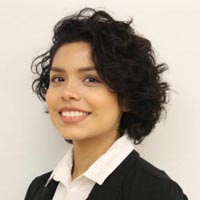 Jennifer is a recent graduate of the University of Illinois at Urbana-Champaign with a Bachelor of Science in Natural Resource and Environmental Sciences with a concentration in Human Dimensions, along with two minors in Sustainability and Business. She will attend Northwestern University in Fall 2021 to obtain her Master of Science in Energy and Sustainability. Jennifer has long been a passionate environmentalist since growing up in the lower-income areas of Chicago exposed her to environmental injustices at a young age. She continues to advocate for environmental equity in her community as she works to bring nature to barren neighborhoods. Jennifer is a recent graduate of the University of Illinois at Urbana-Champaign with a Bachelor of Science in Natural Resource and Environmental Sciences with a concentration in Human Dimensions, along with two minors in Sustainability and Business. She will attend Northwestern University in Fall 2021 to obtain her Master of Science in Energy and Sustainability. Jennifer has long been a passionate environmentalist since growing up in the lower-income areas of Chicago exposed her to environmental injustices at a young age. She continues to advocate for environmental equity in her community as she works to bring nature to barren neighborhoods. RCC Fellowship Project: Through her connections in Chicago, Jennifer is researching the effects of Nature Deficit Disorder (NDD) in primarily low-income African American communities. She will conduct extensive interviews and surveys to research the causes and impacts of NDD. She will write about her findings and experiences to promote better understanding of NDD and to support communities like hers across the country. RCC Fellow — Sahil Inaganti — Tulane University 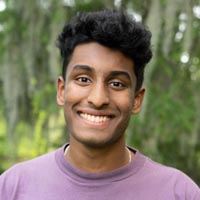 Sahil is a junior at Tulane University pursuing majors in Environmental Studies, Public Health, and Political Economy with minors in Urban Studies and Management. Originally from Allentown, Pennsylvania, Sahil is passionate about addressing issues of environmental injustice that involve public health. He has interned at the Tulane Environmental Law Clinic where he analyzed emissions in Louisiana’s Cancer Alley and has conducted research on the effect of COVID-19 in exacerbating health disparities. At Tulane, Sahil is president of the School of Public Health’s Student Government and co-founder of the Health Equity Fellowship, a leadership development program for first-year students interested in advancing health equity. He is also a trip leader for Tulane Outdoor Adventures where he leads students on outdoor trips across the Gulf South. Sahil is a junior at Tulane University pursuing majors in Environmental Studies, Public Health, and Political Economy with minors in Urban Studies and Management. Originally from Allentown, Pennsylvania, Sahil is passionate about addressing issues of environmental injustice that involve public health. He has interned at the Tulane Environmental Law Clinic where he analyzed emissions in Louisiana’s Cancer Alley and has conducted research on the effect of COVID-19 in exacerbating health disparities. At Tulane, Sahil is president of the School of Public Health’s Student Government and co-founder of the Health Equity Fellowship, a leadership development program for first-year students interested in advancing health equity. He is also a trip leader for Tulane Outdoor Adventures where he leads students on outdoor trips across the Gulf South. RCC Fellowship Project: For his fellowship project, Sahil plans to lead a divestment campaign at Tulane University. Tulane has a $1.45 billion endowment, of which a sizable portion is invested in fossil fuel companies. Given the disproportionate impact of fossil fuel and petrochemical production in Louisiana and the state’s unique vulnerability to climate change, Sahil intends to educate and mobilize Tulane to conclude that it is unacceptable for a school so indebted to the state and its people to continue fossil fuel investments. RCC Fellow — Yasmeen Mir — University of Missouri  Yasmeen Mir is a rising senior at the University of Missouri Columbia. With previous experience in journalism and a current major in Anthropology, she seeks to take an interdisciplinary approach to environmental justice. She grew up in Kansas City, Missouri, volunteering with Community Gardens and various community organizations. In the past, she has worked on New Orleans area campaigns against petrochemical factories along the Mississippi River corridor. In her college career, she has focused on topics like political ecology and green economies that help inform the way she thinks about future solutions. She has spent time doing policy research with the City of Kansas City and the ACLU of Missouri about the inequities of her home state. Yasmeen brings her skills as a journalist and creative writer to environmental justice. Yasmeen Mir is a rising senior at the University of Missouri Columbia. With previous experience in journalism and a current major in Anthropology, she seeks to take an interdisciplinary approach to environmental justice. She grew up in Kansas City, Missouri, volunteering with Community Gardens and various community organizations. In the past, she has worked on New Orleans area campaigns against petrochemical factories along the Mississippi River corridor. In her college career, she has focused on topics like political ecology and green economies that help inform the way she thinks about future solutions. She has spent time doing policy research with the City of Kansas City and the ACLU of Missouri about the inequities of her home state. Yasmeen brings her skills as a journalist and creative writer to environmental justice. RCC Fellowship Project: Kansas City is well known as one of the most segregated cities in the United States. Less discussed is the intersection of segregation, urban blight, and environmental degradation. In places like New Orleans or Detroit, industrial pollution and poor infrastructure disproportionately affect communities of color and lower socioeconomic standing. In Kansas City, Troost Avenue is the best known racial dividing line. However, with the completion of Highway 71, a new divide was created. The resulting environmental and public health impact has not been well documented, nor the voices of those who live there well heard. Yasmeen will document these impacts and give voice to the poor and people of color through oral histories of affected families, community groups, and long-time residents, a more powerful, nuanced and previously undocumented history of environmental racism in Kansas City will brought to the public's attention. RCC Fellow — Edgar Villeda — Appalachian State University 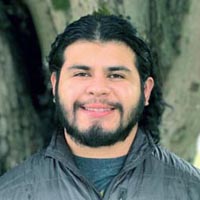 Edgar is a senior majoring in Biological Anthropology and minoring in Biology at Appalachian State University. Edgar has long held a passion for conservation and primates. From Jeff Corwin to Jane Goodall and Rachel Carson, environmental leaders have inspired Edgar that there is still hope for us and the wildlife that shares the earth with us. Edgar is working to support his community in efforts to address environmental justice issues, while hoping to build a career helping other communities do the same. Edgar is a senior majoring in Biological Anthropology and minoring in Biology at Appalachian State University. Edgar has long held a passion for conservation and primates. From Jeff Corwin to Jane Goodall and Rachel Carson, environmental leaders have inspired Edgar that there is still hope for us and the wildlife that shares the earth with us. Edgar is working to support his community in efforts to address environmental justice issues, while hoping to build a career helping other communities do the same. RCC Fellowship Project: Edgar’s work in coordination with the Appalachian State EJ Co-Lab plans to shed light on the challenges faced by community-based initiatives in eastern North Carolina, specifically Robeson and Sampson County. The goal is to bring Johnston County into an ongoing, multi-county research project (led by the EJ Co-lab) and investigate how Latinx communities are experiencing environmental vulnerabilities and fears. Understanding how migrants navigate the landscape and labor in places like farms, meat packing factories, and nonprofit organizations that advocate for farmworkers will provide narratives and strategies to improve their living and working conditions. RCC Fellow — Sara Heimlich — Tulane University 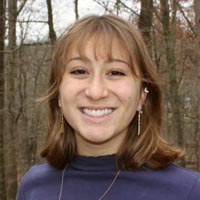 Sara Heimlich is a rising senior at Tulane University majoring in Environmental Studies and Political Science, with minors in History and Psychology. On campus, Sara is a DJ for WTUL New Orleans 91.5FM, a member of the student government's sustainability committee, and an intern with the Tulane Admissions Department. She is interning for the Alliance for Affordable Energy, a local nonprofit that advocates for fair, affordable and environmentally responsible energy policy in New Orleans. She is also a Clean Energy Advocacy Intern with the Vermont Law School's Institute for Energy and the Environment, doing research on state-by-state solar regulations. Sara loves to explore New Orleans, backpack, and camp whenever she gets the chance. Sara Heimlich is a rising senior at Tulane University majoring in Environmental Studies and Political Science, with minors in History and Psychology. On campus, Sara is a DJ for WTUL New Orleans 91.5FM, a member of the student government's sustainability committee, and an intern with the Tulane Admissions Department. She is interning for the Alliance for Affordable Energy, a local nonprofit that advocates for fair, affordable and environmentally responsible energy policy in New Orleans. She is also a Clean Energy Advocacy Intern with the Vermont Law School's Institute for Energy and the Environment, doing research on state-by-state solar regulations. Sara loves to explore New Orleans, backpack, and camp whenever she gets the chance. RCC Fellowship Project: Sara will extend her work to bring the first solar initiative to Tulane's campus through community solar. Community solar is a set of regulations that provides low-income families with discounted energy bills without having to install solar panels on their home. Instead, Tulane's campus would be the host site for the solar array that will benefit New Orleans residents in African American communities. RCC Fellow — Gabriela Duncan — University of North Carolina at Chapel Hill 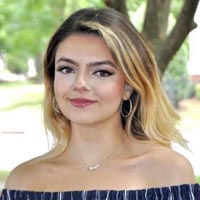 Gabriela Duncan is a rising junior at the University of North Carolina at Chapel Hill, majoring in Interdisciplinary Studies: Environmental Justice with a minor in Geography. After graduation, she hopes to go to law school to focus on environmental law and specialize in environmental justice cases, a love sparked by her divestment work. Gabriela is also engaged in research with Dr. Gabriela Valdivia about mutual aid organizing in Ecuador during the stay-at-home orders of COVID-19. Outside of EJ work, Gabriela enjoys meeting prospective students as an Admissions Ambassador, playing the saxophone as a Pep Band/Marching Band member, dancing to reggaeton, cooking, and traveling. Gabriela Duncan is a rising junior at the University of North Carolina at Chapel Hill, majoring in Interdisciplinary Studies: Environmental Justice with a minor in Geography. After graduation, she hopes to go to law school to focus on environmental law and specialize in environmental justice cases, a love sparked by her divestment work. Gabriela is also engaged in research with Dr. Gabriela Valdivia about mutual aid organizing in Ecuador during the stay-at-home orders of COVID-19. Outside of EJ work, Gabriela enjoys meeting prospective students as an Admissions Ambassador, playing the saxophone as a Pep Band/Marching Band member, dancing to reggaeton, cooking, and traveling. RCC Fellowship Project: Gabriela’s introduction to fossil fuel divestment started her first year at UNC-Wilmington as a member of student government. She was called upon to write a resolution to challenge UNCW to divest from fossil fuels. Ever since, divestment activism has been the focus of her efforts to make change on campus. After transferring to UNC-Chapel Hill, she co-founded UNC Reinvest, an organization focused on fighting the entire UNC System’s contributions to environmental injustice. Gabriella is excited to get more involved in community empowerment and mutual aid to help establish the foundation for a successful movement that will get the UNC System to divest from fossil fuels. RCC Presidential Fellow — Audrey Magnuson – Duke University  Audrey Magnuson is a rising senior at Duke University majoring in Public Policy with minors in Environmental Science and Art History. She is passionate about leveraging quality environmental policy to better her community in North Carolina and beyond, particularly in environmental justice. She hopes to earn a law degree after completing her Duke education. In her free time, Audrey is a yoga and Pilates instructor and loves to spend time looking for new hiking trails or creating new recipes in the kitchen. On campus, she also leads an all-women’s dance company and directs communications for a student-led sexual violence prevention initiative. Audrey Magnuson is a rising senior at Duke University majoring in Public Policy with minors in Environmental Science and Art History. She is passionate about leveraging quality environmental policy to better her community in North Carolina and beyond, particularly in environmental justice. She hopes to earn a law degree after completing her Duke education. In her free time, Audrey is a yoga and Pilates instructor and loves to spend time looking for new hiking trails or creating new recipes in the kitchen. On campus, she also leads an all-women’s dance company and directs communications for a student-led sexual violence prevention initiative. RCC Presidential Fellowship: Audrey works with RCC President & CEO Bob Musil as the leader of the RCC Coasts and Ocean Program and producer and editor of the RCC Coasts and Ocean Observer. She is also researches and advocates for RCC environmental justice and climate policy at the Federal level and in North Carolina. Audrey also represents the RCC in coalitions focused on ending the production of wood pellets and clear-cutting forests. She is also assisting Dr. Musil with research for his scholarly, annotated, and illustrated edition, with a new Introduction, of Rachel Carson’s first book, Under the Sea-Wind (Rutgers University Press, forthcoming). RCC Presidential Fellow — Isabel Wood – Duke University 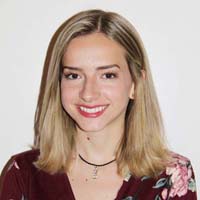 Isabel Wood is a rising Junior at Duke University majoring in Environmental Science and Policy with a certificate in Documentary Studies. She feels passionate about science communication, the preservation of biodiversity, and environmental justice. Outside of the classroom, Isabel is a Vice President of the Duke Undergraduate Environmental Union (UEU) where she works on environmental literacy topics and The Enviro-Art Gallery. She is also in Duke Mock Trial and works for the Wright Lab, a research lab focused on climate change and ecology. Isabel is excited to be one of this year’s Presidential Fellows with the RCC. She believes that learning to communicate about the environment in the way that Rachel Carson did and the way that the RCC continues her legacy is key to solving many environmental issues. Isabel Wood is a rising Junior at Duke University majoring in Environmental Science and Policy with a certificate in Documentary Studies. She feels passionate about science communication, the preservation of biodiversity, and environmental justice. Outside of the classroom, Isabel is a Vice President of the Duke Undergraduate Environmental Union (UEU) where she works on environmental literacy topics and The Enviro-Art Gallery. She is also in Duke Mock Trial and works for the Wright Lab, a research lab focused on climate change and ecology. Isabel is excited to be one of this year’s Presidential Fellows with the RCC. She believes that learning to communicate about the environment in the way that Rachel Carson did and the way that the RCC continues her legacy is key to solving many environmental issues. RCC Presidential Fellowship: Isabel works with RCC President & CEO Bob Musil as the co-lead with Ross Feldner of the RCC Bird Watch and Wonder Program and as producer and editor of RCC Bird Watch and Wonder. She also researches and advocates for RCC’s work on birds and ecology and related wilderness and endangered species issues. Isabel also works with Dr. Musil and Associate Director Mackay Pierce on social media and communications. RCC Fellow — Ethan Vitaz — Pitzer College 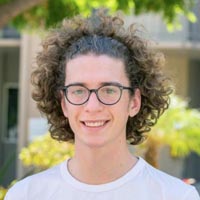 Ethan Vitaz is a senior at Pitzer College studying Environmental Analysis with a focus on Sustainability in the Built Environment. He is primarily interested in using regional food systems as a tool to mitigate catastrophic climate change, increase resiliency, and restore ecological health. He is also interested in the importance of building regional power to demand suitable solutions to the issues we face today. He believes that addressing our ecological crises requires returning stolen land to the Indigenous people that have cared for the land for centuries. Ethan Vitaz is a senior at Pitzer College studying Environmental Analysis with a focus on Sustainability in the Built Environment. He is primarily interested in using regional food systems as a tool to mitigate catastrophic climate change, increase resiliency, and restore ecological health. He is also interested in the importance of building regional power to demand suitable solutions to the issues we face today. He believes that addressing our ecological crises requires returning stolen land to the Indigenous people that have cared for the land for centuries. RCC Fellowship Project: Ethan has experience working as an educator and student organizer at the Claremont Colleges. He believes that the largest investors and corporations are most responsible for the current state of our climate and have the largest responsibility to rectify our global situation. This year, he will follow in the footsteps of Wet’suwet’en leaders in demanding institutional divestment from the Coastal GasLink Pipeline at the Claremont Colleges. RCC Fellow — Willow Gatewood — Catawba College 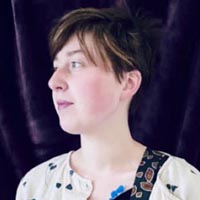 Willow Gatewood is a rising junior at Catawba College studying Environment and Sustainability, with minors in Creative Writing and GIS. She is currently an intern and work-study for the Catawba College Center for the Environment and involved in environmental and climate advocacy groups such as Citizen's Climate Lobby, 350.org, and Fridays for Future. Her passions lie in regenerative, sustainable living, environmental justice, and helping others see the connections between human-made systems and ecosystems through writing and art. After completing her undergraduate degree, she plans to pursue a Master's towards a career in ecosystems conservation, with a focus on educating others. She also aspires to pursue Indigenous studies to bring more Indigenous science and knowledge to the fields of conservation and ecology. In her free time, she can be found exploring the woods around her home in Cascade, Virginia, reading, gardening, or tucked away in a quiet place writing, painting, and playing guitar. Willow Gatewood is a rising junior at Catawba College studying Environment and Sustainability, with minors in Creative Writing and GIS. She is currently an intern and work-study for the Catawba College Center for the Environment and involved in environmental and climate advocacy groups such as Citizen's Climate Lobby, 350.org, and Fridays for Future. Her passions lie in regenerative, sustainable living, environmental justice, and helping others see the connections between human-made systems and ecosystems through writing and art. After completing her undergraduate degree, she plans to pursue a Master's towards a career in ecosystems conservation, with a focus on educating others. She also aspires to pursue Indigenous studies to bring more Indigenous science and knowledge to the fields of conservation and ecology. In her free time, she can be found exploring the woods around her home in Cascade, Virginia, reading, gardening, or tucked away in a quiet place writing, painting, and playing guitar. RCC Fellowship Project: Willow will create a Sustainability Task Force, comprised of students, staff, faculty, and other community members, that will address the campus's most pressing sustainability needs. She plans to prepare the campus for a transition into a more formalized Office of Sustainability and build a stronger, more resilient, sustainable community. Task force projects will include community building that will engage students and the larger community in working together. RCC Fellow — Kisara Dang — University of Texas at Austin 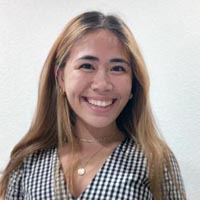 Kisara Dang is a junior geography, sustainability, business, and humanities major at the University of Texas at Austin from Kerrville, Texas. Her humanities degree focuses on the spatial and social implications of environmental policy. Her passions lie in research and teaching others about interdisciplinary and intersectional environmentalism. Ultimately, Kisara hopes to become a professor of environmental policy. Kisara has also worked as an intern at the City of Austin Urban Forestry Department as well as a Mickey Leland Environmental Intern at the Texas Commission of Environmental Quality. On campus, she is a team member of projects related to campus sustainability including awards for the President's Award for Global Learning and the University of Texas Green Fund Award. Kisara Dang is a junior geography, sustainability, business, and humanities major at the University of Texas at Austin from Kerrville, Texas. Her humanities degree focuses on the spatial and social implications of environmental policy. Her passions lie in research and teaching others about interdisciplinary and intersectional environmentalism. Ultimately, Kisara hopes to become a professor of environmental policy. Kisara has also worked as an intern at the City of Austin Urban Forestry Department as well as a Mickey Leland Environmental Intern at the Texas Commission of Environmental Quality. On campus, she is a team member of projects related to campus sustainability including awards for the President's Award for Global Learning and the University of Texas Green Fund Award. RCC Fellowship Project: Kisara is creating a series of podcasts and multimedia content to communicate the value and relevance on campus of sustainability topics, especially environmental justice, through funding from the Green Fund award. Kisara hopes to broaden support for sustainability, environmental justice, and student engagement to student sectors and constituencies not typically interested or involved in environmental issues or activism. | | | | 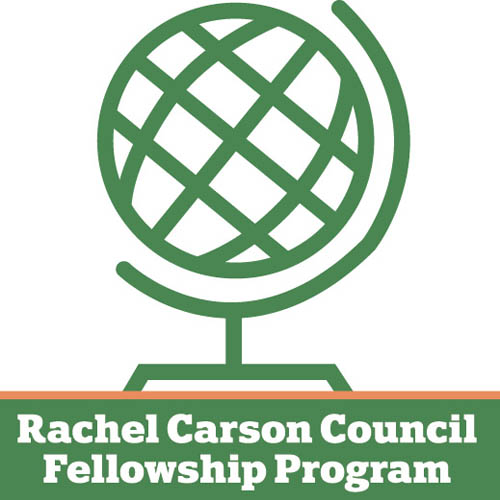 After a year of remote organizing, building podcasts, campaigns, and engaging with students, faculty and communities, we said farewell to our 2020- 2021 class of RCC Fellows. Let’s take a look back at highlights from some of their final work: After a year of remote organizing, building podcasts, campaigns, and engaging with students, faculty and communities, we said farewell to our 2020- 2021 class of RCC Fellows. Let’s take a look back at highlights from some of their final work: | | | | Divesting for Change: From Apartheid to the Climate Crisis 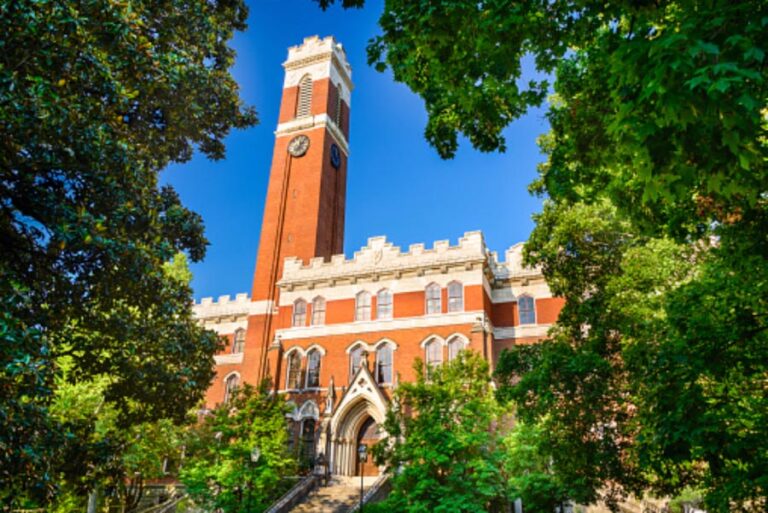 As a fossil fuel divestment activist at Vanderbilt University, I come from a long generation of divestment advocates before me. For instance, fossil fuel divestiture has clear parallels to the anti-apartheid divestment movement of the 1980s, which, like fossil fuel divestiture, had “a well-defined, immediate objective” that targeted higher education institutions. Apartheid divestiture was an integral component of toppling the oppressive South African governmental regime and, other than fossil fuels, is the best-known divestment movement. However, there have been multiple waves of divestment protests that took on a myriad of issues. In the 1990’s students urged their higher education institutions to divest from the tobacco industry because of smoking’s harmful health effects. More broadly, there are divestment campaigns associated with specific countries involved in genocide, weapons manufacturing, private prisons, and the Israeli occupation of Palestine. Read more As a fossil fuel divestment activist at Vanderbilt University, I come from a long generation of divestment advocates before me. For instance, fossil fuel divestiture has clear parallels to the anti-apartheid divestment movement of the 1980s, which, like fossil fuel divestiture, had “a well-defined, immediate objective” that targeted higher education institutions. Apartheid divestiture was an integral component of toppling the oppressive South African governmental regime and, other than fossil fuels, is the best-known divestment movement. However, there have been multiple waves of divestment protests that took on a myriad of issues. In the 1990’s students urged their higher education institutions to divest from the tobacco industry because of smoking’s harmful health effects. More broadly, there are divestment campaigns associated with specific countries involved in genocide, weapons manufacturing, private prisons, and the Israeli occupation of Palestine. Read more | | | | | | Forever Chemicals (PFAs) and America's Polluted Water Sources 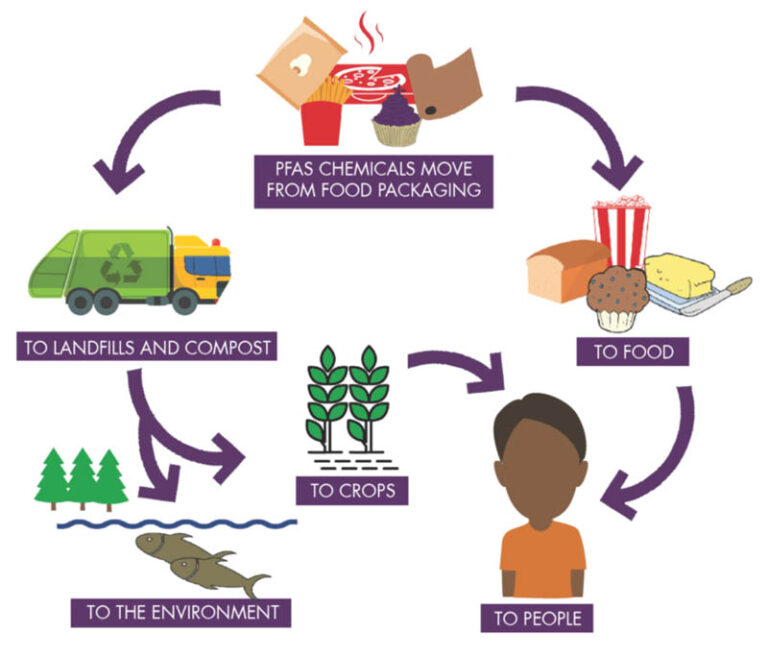 Gen X, PFAs (Polyfluoroalkyl Substances), forever chemicals, these pollutants go by many names, but they all describe a chemical group of carcinogens widely abundant in the United States’ surface and now groundwater systems — the sources we rely on for our drinking water. PFAs are found in many consumer products and have been linked to adverse health effects including liver problems, increased risk of asthma, reduced response to vaccines, and kidney and testicular cancers. There is now a substantial body of evidence to show PFAs are endocrine disruptors – chemicals that interfere with hormone function and are linked to obesity, thyroid disease, and Type 2 diabetes. Little did I know, PFAs have been a part of my life since before I heard their name for the first time back in freshman year (2017) at UNCW in my college town of 60,000 in Wilmington, North Carolina. I had just recently moved from Philadelphia to Wilmington to attend university when it splattered all over the news. These forever chemicals had been steadily released into Wilmington’s drinking water by the Dupont Chemical plant for the last 30 years. Read more Gen X, PFAs (Polyfluoroalkyl Substances), forever chemicals, these pollutants go by many names, but they all describe a chemical group of carcinogens widely abundant in the United States’ surface and now groundwater systems — the sources we rely on for our drinking water. PFAs are found in many consumer products and have been linked to adverse health effects including liver problems, increased risk of asthma, reduced response to vaccines, and kidney and testicular cancers. There is now a substantial body of evidence to show PFAs are endocrine disruptors – chemicals that interfere with hormone function and are linked to obesity, thyroid disease, and Type 2 diabetes. Little did I know, PFAs have been a part of my life since before I heard their name for the first time back in freshman year (2017) at UNCW in my college town of 60,000 in Wilmington, North Carolina. I had just recently moved from Philadelphia to Wilmington to attend university when it splattered all over the news. These forever chemicals had been steadily released into Wilmington’s drinking water by the Dupont Chemical plant for the last 30 years. Read more | | | | Visualizing Climate Change: Are Opinion Maps Telling the Full Story? 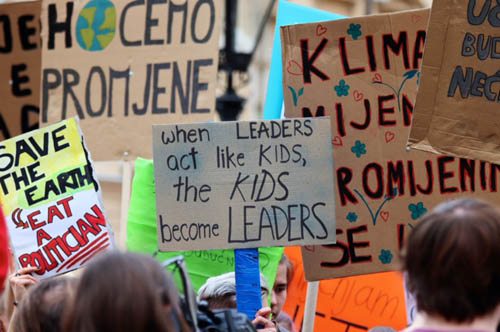 Collecting public opinion on global warming and climate change is instrumental in influencing decision-making and policy for the reduction and mitigation of future impacts. Yet, the way public opinion is collected differs across scale, from the national to the local level. Collecting public opinion on global warming and climate change is instrumental in influencing decision-making and policy for the reduction and mitigation of future impacts. Yet, the way public opinion is collected differs across scale, from the national to the local level.
National-level statistics, which are often more easily attainable and cost-effective, can gloss over important differences in opinion at smaller scales such as counties and metropolitan areas. In an effort to combat these inconsistencies, the Yale Program on Climate Change Communication (YPCCC) developed a model that breaks down national public opinion to smaller scales of measurement, allowing for rich data visualization that speaks to the diversity of Americans’ beliefs, attitudes and policy support. Read more | | | | | | Politics and the Pandemic: Climate Solutions in the US and North Carolina  Even now — in the interlude between the chaos of the Trump Administration and the deep exhale that is a Biden Presidency on the horizon — the detrimental and self-destructive climate effects of Donald Trump’s promotion of the fossil fuel industry and casting aside renewable energy feel like impending doom. Scientists warn us we are not doing enough. With data pointing toward rapid global warming, we see the adverse effects of fossil fuels emissions from glacial ice melting to ecosystem collapse to the spread of zoonotic diseases, especially the dire health emergency we face with the COVID-19 pandemic. But with the election behind us and administrations riding into Washington and Raleigh that care deeply about climate change, there is hope that we can rise to our immense environmental challenges before it is too late. Read more Even now — in the interlude between the chaos of the Trump Administration and the deep exhale that is a Biden Presidency on the horizon — the detrimental and self-destructive climate effects of Donald Trump’s promotion of the fossil fuel industry and casting aside renewable energy feel like impending doom. Scientists warn us we are not doing enough. With data pointing toward rapid global warming, we see the adverse effects of fossil fuels emissions from glacial ice melting to ecosystem collapse to the spread of zoonotic diseases, especially the dire health emergency we face with the COVID-19 pandemic. But with the election behind us and administrations riding into Washington and Raleigh that care deeply about climate change, there is hope that we can rise to our immense environmental challenges before it is too late. Read more | | | | | | | | From Fear to Hope: Amidst Turmoil, Climate Change Action Has Been Happening at Every Level 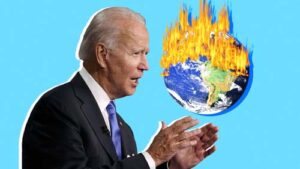 As I reflect upon this circus of a year, one thing is abundantly clear — life is unpredictable, and if we have the option to do good, we should. This year was full of grief, disappointment, hurt, and fear. We’ve watched hundreds of thousands of Americans die from the COVID-19 virus, protests erupt around the injustices carried out by law enforcement, and a massive shift in daily life for everyone. While much of 2020 was clouded by frustration and loss, there were some brilliant moments of human kindness and perseverance. From drive-by birthday parties to the development of a COVID-19 vaccine, we’ve seen adaptation on a grand stage. Read more As I reflect upon this circus of a year, one thing is abundantly clear — life is unpredictable, and if we have the option to do good, we should. This year was full of grief, disappointment, hurt, and fear. We’ve watched hundreds of thousands of Americans die from the COVID-19 virus, protests erupt around the injustices carried out by law enforcement, and a massive shift in daily life for everyone. While much of 2020 was clouded by frustration and loss, there were some brilliant moments of human kindness and perseverance. From drive-by birthday parties to the development of a COVID-19 vaccine, we’ve seen adaptation on a grand stage. Read more | | | | | | BOOKS What it Means to be Wild - Emma Marris 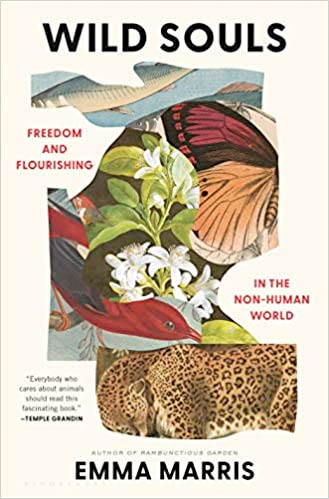 Against the backdrop of a world so thoroughly altered by humankind, Emma Marris's latest book, Wild Souls, challenges our assumptions about nature and how we protect it. Against the backdrop of a world so thoroughly altered by humankind, Emma Marris's latest book, Wild Souls, challenges our assumptions about nature and how we protect it.
In 1985, biologist Michael Soulé introduced the fledgling field of conservation biology, a scientific response to the planet’s many ecological disruptions. Its goal, he wrote, was to support efforts aimed at “preserving biological diversity.” He also declared several foundational values to guide the emerging discipline; chief among them: Biodiversity has intrinsic value.
Another key point Soulé made was that protecting populations of organisms should rank over the welfare of individuals, though any individual’s suffering may be “regrettable.” At the time, he imagined the stoic biologist resisting the urge to “rescue” an abandoned young bird or injured rabbit, and called for prioritizing a species’ best interests. Survival of the fittest, after all.
Today, human interactions with wild animals have become perhaps exponentially more complex. It’s nearly impossible for nature to avoid our influence—rendering useless the long-misleading definition of “wild” as “untouched by humans.” We are disrupting the global climate, moving around plants and animals, plowing under primeval forests. While humans are trying, on a limited scale, to fix the mistakes of the past, that’s not without its own perils: from taking into captivity every last free-roaming individual of a species to delivering agonizing death to some animals in the hopes of saving others. Moral dilemmas abound, but for conservationists, the ends often justify the means if they preserve biodiversity.  For a long time, environmental writer Emma Marris tended to agree. Her identity, both personally and professionally, has been deeply tied to the idea that biodiversity has value and merits preservation, and as a journalist, she has spent years reporting on efforts serving this aim. She has seen up close the lengths that humans will go, and witnessed the blood-and-fur-lined price tag that can come with purchasing protection for the rare and endangered. Yet these experiences have left her questioning many assumptions about how we deal with wild animals. In her new book, Wild Souls: Freedom and Flourishing in the Non-Human World, Marris revisits with a critical eye many of the core values and approaches of modern conservation. To do so, she employs philosophical tools to delicately carve her own path through the ethical boulder field that is our evolving relationship with wildlife. She writes: For a long time, environmental writer Emma Marris tended to agree. Her identity, both personally and professionally, has been deeply tied to the idea that biodiversity has value and merits preservation, and as a journalist, she has spent years reporting on efforts serving this aim. She has seen up close the lengths that humans will go, and witnessed the blood-and-fur-lined price tag that can come with purchasing protection for the rare and endangered. Yet these experiences have left her questioning many assumptions about how we deal with wild animals. In her new book, Wild Souls: Freedom and Flourishing in the Non-Human World, Marris revisits with a critical eye many of the core values and approaches of modern conservation. To do so, she employs philosophical tools to delicately carve her own path through the ethical boulder field that is our evolving relationship with wildlife. She writes: “We’ve touched many animal species so deeply with our wholesale reshaping of planet Earth that we have likely altered their evolutionary trajectories. I wanted to know whether the massive human impact on Earth changes our obligations to animals. What about animals, like the polar bear, that have lost their hunting grounds because of melting sea ice? Do we have an obligation to feed them? What about wild wolves who mate with feral dogs? Should we stop them? What about introduced mice preying on rare seabirds? Should we poison them? In a human-altered world, it seems impossible to just keep saying that our only ethical responsibility to “wild” animals is to “let nature take its course.” It was still unclear to me, though, exactly what this enhanced responsibility might include. Should we be, in some sense, caring for all wild animals? But if we do, will we make them even less wild, less free?
If we could better understand our ethical obligations to our non-human kin, it could significantly improve the way we make decisions in conservation and wildlife management and even in fields like urban planning, veterinary science, pest control, or agriculture. At the moment, whether we legally protect an animal or blithely put it to an agonizing death depends more on the context of the action and the rarity of the species than on whether the animal can feel pain or suffer. Our rules and mores for interacting with animals are capricious and self-contradictory. We can do better.” —Ashley Brown, bioGraphic | | | | | | "Real Steaks" Podcast - Rachel Carson Council  In The Real Steaks, RCC Fellow and Iowa Native Emma Chervek examines Iowa's agriculture industry with an environmental health and justice lens, focusing on the negative environmental effects of industrial agriculture, Iowa's meatpacking plants, and the rise of sustainable and regenerative agriculture. Special guests include Dr. Kristy Nabhan-Warren, Representative Timi Brown-Powers, leaders from various environmental nonprofits, and Iowa's sustainably minded farmers. If you're curious about how our current system of agriculture affects our environment, our communities, and the steps we can take to move towards a better future, give this podcast a listen. Listen to all the episodes of The Real Steaks here. In The Real Steaks, RCC Fellow and Iowa Native Emma Chervek examines Iowa's agriculture industry with an environmental health and justice lens, focusing on the negative environmental effects of industrial agriculture, Iowa's meatpacking plants, and the rise of sustainable and regenerative agriculture. Special guests include Dr. Kristy Nabhan-Warren, Representative Timi Brown-Powers, leaders from various environmental nonprofits, and Iowa's sustainably minded farmers. If you're curious about how our current system of agriculture affects our environment, our communities, and the steps we can take to move towards a better future, give this podcast a listen. Listen to all the episodes of The Real Steaks here. | | | | Planting Seeds of Food Sovereignty Through Gardening | RCC Fellow Elise Dudley | TEDxFurmanU  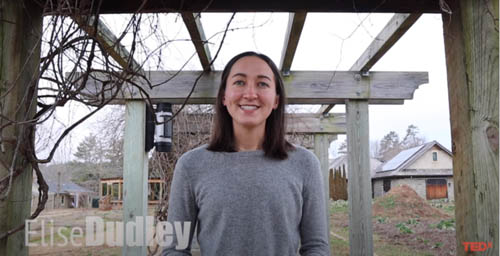 Elise Dudley has graduated from Furman University with a Sustainability Major with a focus on food justice issues. During her time at Furman, she worked, lived, and volunteered on numerous farms, devoted time to projects addressing poverty and food insecurity, and completed coursework in Denmark on sustainable food production and consumption. Elise was a 2021 RCC Fellow whose talk describes a clear vision for the future, where home gardening and local food production can help the planet, people, and reignite our connection to food. Elise Dudley has graduated from Furman University with a Sustainability Major with a focus on food justice issues. During her time at Furman, she worked, lived, and volunteered on numerous farms, devoted time to projects addressing poverty and food insecurity, and completed coursework in Denmark on sustainable food production and consumption. Elise was a 2021 RCC Fellow whose talk describes a clear vision for the future, where home gardening and local food production can help the planet, people, and reignite our connection to food. | | | | From the Green Zine - Franklin & Marshall College Established by student editor Max Sano at Franklin & Marshall College in September 2020, The Green Zine is a platform for young folk that aspire to be agents of environmental change in their communities through conversations, artwork, entrepreneurship, research, storytelling, and advocacy. There are many definitions of “the environment” which allow contributors and creators to delve into complex issues from a variety of perspectives. Here are highlights from the most recent issue:  You Sea
by Chandrakant Dhanraj  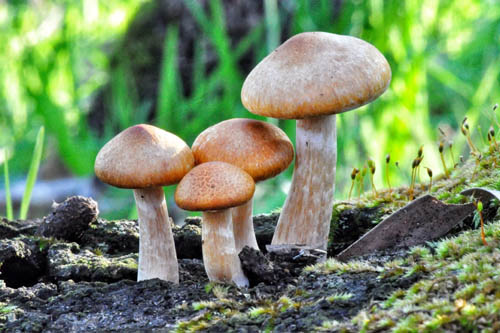 | | | | Plan Your 2021-2022 Campus Event with RCC now! 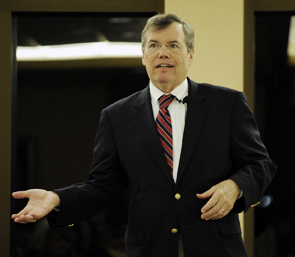 For the first time in over a year, RCC President & CEO, Dr. Robert K. Musil, a national leader in climate change, environmental justice and health is again available to book for in-person campus speaking events! Musil has been called “informative, challenging and inspirational all at once.” He is “motivational” with “intellectual depth” and “extraordinary impact.” For the first time in over a year, RCC President & CEO, Dr. Robert K. Musil, a national leader in climate change, environmental justice and health is again available to book for in-person campus speaking events! Musil has been called “informative, challenging and inspirational all at once.” He is “motivational” with “intellectual depth” and “extraordinary impact.”
Dr. Musil is available for campus lectures and visits involving classes, meetings with campus and community groups, consultations with faculty and administrators, or for Earth Day, Commencement, and other special events. Stays range from one to three days. Reduced fees are in place for 2021-2022 and can be designed to meet reduced budgets. To arrange a campus visit with Dr. Musil, contact the RCC President’s Office at office@rachelcarsoncouncil.org or call 301-214-2400. Dr. Musil is also available to CIC members (Council of Independent Colleges) as a CIC Visiting Fellow (formerly Woodrow Wilson) for stays of a week through the CIC Visiting Fellows Program here. | | | |  The Rachel Carson Council Depends on Tax-deductible Gifts From Concerned Individuals Like You. Please Help If You can. The Rachel Carson Council Depends on Tax-deductible Gifts From Concerned Individuals Like You. Please Help If You can. | | | |  Sign Up Here to Receive the RCC E-News and Other RCC Newsletters, Information and Alerts. Sign Up Here to Receive the RCC E-News and Other RCC Newsletters, Information and Alerts. | | | | | | | | | | | |